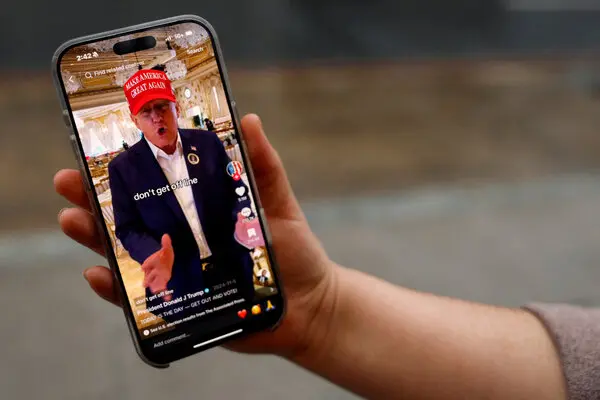The White House has officially joined TikTok, the very app it once sought to ban in a move that has stunned both political observers and digital rights advocates
The account’s first posts feature rapid-fire clips of President Donald Trump and his aides in a meme-inspired, fast-cut style designed for TikTok’s massive youth audience. This comes despite a federal law mandating TikTok’s sale or potential ban over national security concerns.
Earlier this year, the Supreme Court upheld legislation requiring TikTok to either divest from its Chinese parent company, ByteDance, or face a nationwide ban. Federal employees were also explicitly prohibited from using the platform on government devices.
Yet, by launching an official account, the White House appears to be sidestepping those very rules—an action critics say undermines the credibility of U.S. tech policy.
The contradiction is glaring: the same administration that pushed TikTok out of federal hands is now embracing it as a direct communication tool.
Politics Over Policy
For many analysts, this decision underscores a political reality: TikTok’s unparalleled reach, particularly among young voters, makes it too powerful to ignore.
By leaning into the app’s virality, the White House is prioritizing communication over compliance. In essence, political necessity is taking precedence over national security caution.
“This is less about TikTok and more about influence,” one digital strategist observed, pointing out that no other platform offers the same instant access to a demographic that could swing future elections.
The irony runs deep. Only months ago, federal agencies were warning of TikTok’s alleged risks—data harvesting, foreign surveillance, and manipulation of online discourse. Now, the highest office in the land is broadcasting from the same platform.
The White House’s TikTok debut raises uncomfortable questions: If TikTok is truly a security threat, why is it safe enough for presidential messaging? And if it’s safe enough for the president, why ban millions of ordinary Americans from using it?
Why it Matters
Globally, the decision sends mixed signals. Other governments weighing bans on TikTok may now question U.S. consistency. Tech companies, meanwhile, see this as evidence that political expediency often overrides long-term regulation.
For digital economy watchers, the development reflects how tech platforms are no longer neutral spaces but strategic battlegrounds—used not just for entertainment but for governance and influence.
The White House’s move could normalize official government use of TikTok, even as its legal status hangs in the balance. It also signals that when it comes to digital engagement, platforms accused of being threats can still become indispensable.
Ultimately, the launch of the White House TikTok account may prove to be more than a communication strategy—it could reshape the ongoing debate about who controls the future of the internet, and whose rules actually matter.
Talking Points
How does a government ban a platform for “national security” reasons, then turn around and launch its most powerful political brand on the same platform?
This is not just irony; it exposes how regulation often serves political convenience rather than principle. If the White House can bend its own rules, should ordinary citizens still be threatened with bans?
The U.S. has told the world TikTok is dangerous, yet the President is dancing on it. The message is clear: influence trumps security. The problem is not TikTok—it’s that policymakers are more interested in controlling narratives than protecting data.
That should alarm everyone, because it means any platform could be demonized or endorsed depending on who benefits politically.





